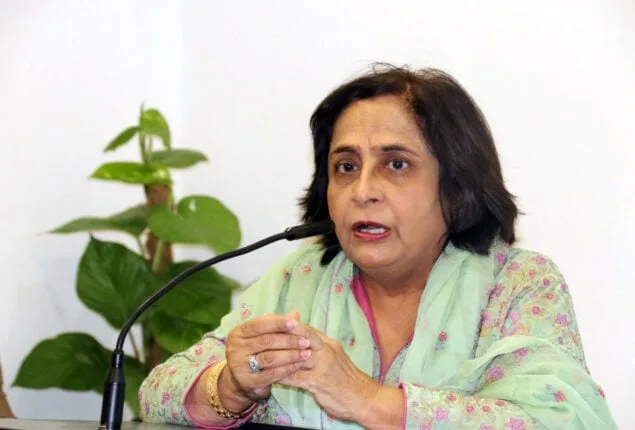Sindh Health Minister Dr. Azra Fazal Pechuho has introduced significant reforms aimed at transforming the province’s healthcare system. These initiatives include the introduction of biometric attendance systems in hospitals, improvements in medical training, and strategies to combat the ongoing shortage of anaesthesiologists.
During a press briefing, Dr. Azra highlighted that a biometric attendance system will be installed in all hospitals across Sindh to curb absenteeism among healthcare staff. This reform is expected to ensure the regular presence of medical professionals and enhance service delivery in public hospitals. Furthermore, teaching hospitals will soon feature simulation labs to elevate the practical skills of healthcare professionals.
Healthcare Reforms and Staffing Improvements
To address staffing issues, the Sindh Public Service Commission has initiated the recruitment of doctors, while the hiring of paramedics and other staff will commence once court orders are issued. The Sindh Health Department is also working on releasing funds to streamline medication supplies at Jinnah Hospital, ensuring that medicine shortages are addressed efficiently.
Dr. Azra further mentioned that the department is taking action against corruption in the healthcare sector. This includes an inquiry into the scandal at Lyari’s Male College of Nursing, where students were admitted using fake domiciles. She confirmed that these students have been expelled and that the health officials involved will face strict disciplinary actions.
Tackling the Maternal Health Crisis and Human Milk Bank Opposition
One of the critical reforms being pursued is the establishment of a Human Milk Bank to address maternal and infant health issues. However, this initiative has faced resistance due to concerns related to milk kinship in Islamic teachings. Dr. Azra assured that the health department is collaborating with the National Database & Registration Authority (NADRA) and the Council of Islamic Ideology to find a resolution. She emphasized the health benefits of breast milk for newborns and cautioned against the risks of formula milk, recommending it only be used under medical guidance.
Fight Against Vector-Borne Diseases
Sindh has also been battling vector-borne diseases, with 140 confirmed cases of chikungunya reported this year. However, the province has made progress in controlling malaria outbreaks. Dr. Azra advocated for larvicide campaigns to prevent mosquito breeding, as fumigation alone is not a comprehensive solution.
Shortage of Anaesthesiologists and ICU Functionality
Dr. Azra addressed the shortage of anaesthesiologists, which has led to ICU closures in some hospitals. To combat this, the health department is working to create a system where private hospital anaesthesiologists also serve in public hospitals, ensuring ICUs remain operational.
Medico-Legal Officers and Civil Hospital Upgrades
To bolster the medico-legal infrastructure, 17 medico-legal officers have been recruited in Karachi, with the majority being women. Additionally, Civil Hospital, the province’s second-largest medical facility, is set to receive major upgrades, including two new medical towers.
Expansion of Sindh’s E-Pharmacy Initiative
Sindh’s e-pharmacy initiative, launched at Civil Hospital to ensure transparent medicine distribution, will soon be expanded to other hospitals. Dr. Azra also noted that, as of now, there have been no reported cases of Mpox in Sindh, but the health department remains vigilant and prepared for any potential outbreak.
SindhHealthcareReforms #BiometricAttendanceSystem #AnaesthesiologistShortage #MaternalHealthSindh #SindhPublicServiceCommission #NursingCollegeScandal #HumanMilkBank #ChikungunyaCases #HealthcareUpgrades #SindhEPharmacy



+ There are no comments
Add yours